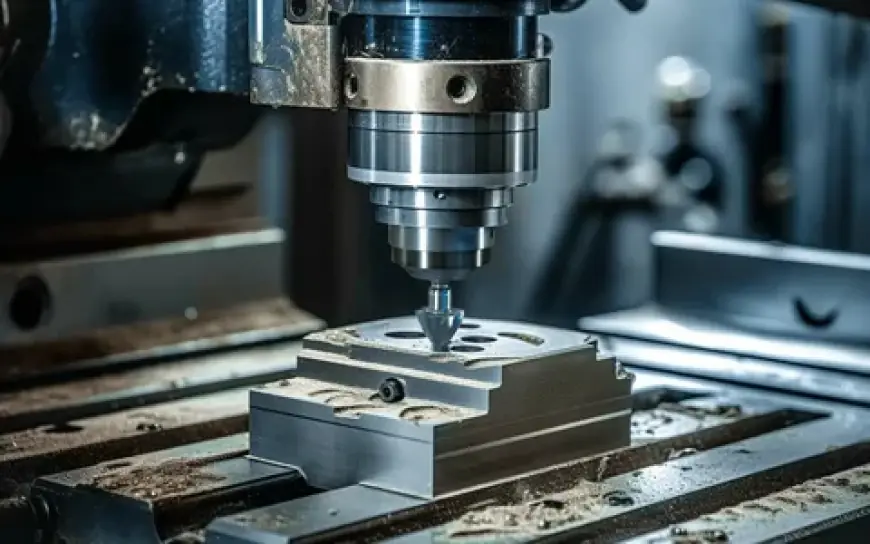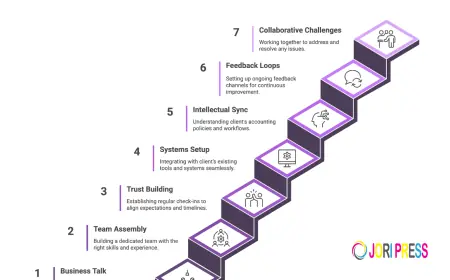Why CNC Machining Is Essential in Today’s Manufacturing
Discover how CNC machining empowers scalable, high-precision manufacturing. Learn key benefits, applications, and what to look for in a CNC partner.

In a competitive industrial landscape where precision, speed, and repeatability are non-negotiable, CNC Machining has become the backbone of modern manufacturing. From aerospace and medical devices to electronics and automotive components, manufacturers rely on CNC processes to create high-precision parts with tight tolerances. Whether you're a startup designing your first prototype or an OEM scaling production, understanding how CNC machining works and how to source the right partner is critical to product success. As industries move toward digital transformation and automation, CNC technology is no longer a luxury—it’s a requirement for staying relevant and competitive in the market.
The Role of CNC Machining in Product Development and Mass Production
CNC machining, or Computer Numerical Control machining, refers to subtractive manufacturing processes where programmed software controls the movement of tools and machinery. It provides unmatched consistency and precision across a wide range of materials.
Why CNC Is Trusted for High-Stakes Manufacturing
Precision is the key reason manufacturers choose CNC over manual or less controlled methods. A single command in a CNC program ensures repeatability across hundreds or thousands of parts, removing human error and variability from the process. In sectors like aerospace, medical implants, and defense, even minor deviations can be catastrophic. CNC machining eliminates those risks, ensuring component accuracy down to the microns.
Additionally, CNC systems enable complex geometries that would be impossible to replicate by hand. Multi-axis machines—like 3-axis, 4-axis, or 5-axis CNC setups—can perform simultaneous operations, reducing lead times and minimizing tool changes. This drastically shortens the path from concept to prototype to final product.
Material Flexibility and Versatility
CNC machining supports a vast range of materials including metals (aluminum, stainless steel, titanium), plastics (ABS, PEEK), and even advanced composites. This versatility allows engineers and designers to focus on functional requirements without being constrained by fabrication limits.
Another key advantage is the surface finish. CNC processes often deliver superior finish quality, especially when compared to 3D printing or casting. This is critical in medical, automotive, and consumer electronics applications where both function and aesthetics matter.
Key Considerations When Partnering with a CNC Machining Service Provider
Selecting the right CNC machining partner is essential to product integrity, production efficiency, and cost-effectiveness. From design review to post-processing, each step of the CNC workflow should be executed with engineering precision and transparency.
Capabilities, Equipment, and Technical Expertise
A reputable CNC machining service should have a full suite of equipment, including 3-axis to 5-axis CNC mills, CNC lathes, surface grinders, and inspection systems like CMM (Coordinate Measuring Machines). But having the machines isn’t enough—what truly matters is the technical expertise of the machinists and engineers who operate them.
Service providers should also offer DFM (Design for Manufacturability) support, helping clients optimize parts to reduce cost and machining time. This is especially valuable during prototyping and pre-production stages, where design flaws are easier and cheaper to fix.
Tolerance, Compliance, and Quality Assurance
In precision manufacturing, tolerances often define the usability of a part. Good CNC partners clearly communicate achievable tolerances and verify them using calibrated inspection tools. Look for suppliers who work under certified systems like ISO 9001 or AS9100 and who document their quality control processes end-to-end.
Traceability and documentation are critical in regulated industries such as aerospace and medical. If your product will require validation or auditing, the CNC supplier should be able to provide detailed inspection reports, certificates of conformity, and even first-article inspection records.
How CNC Machining Supports Scalable Growth and Innovation
Beyond manufacturing precision, CNC machining offers long-term value in terms of scalability, prototyping agility, and cost control.
From Prototype to Full-Scale Production
CNC machining excels at both low-volume production and high-scale manufacturing. For startups and product developers, it provides an efficient way to prototype designs using real engineering materials—not just printed resin or plastic. Once the prototype is approved, the same CNC program can be scaled up for hundreds or thousands of units, minimizing design-to-production friction.
Also, when compared to injection molding or casting, CNC allows for quicker changes. Engineers can adjust the CAD file, reprogram the CNC machine, and begin cutting updated parts within hours—a level of agility that traditional methods simply can’t match.
Cost and Lead Time Optimization
While CNC machining may seem more expensive upfront compared to methods like die casting, it eliminates tooling costs and reduces turnaround time. For complex parts or high-mix, low-volume production, CNC becomes the most cost-efficient option. Efficient tool paths, modern CAM software, and batch scheduling further reduce cycle times, ensuring quicker delivery without compromising quality.
In global supply chains where lead time is king, having a reliable CNC partner can provide a competitive edge. Onshore or nearshore CNC manufacturing also helps reduce shipping delays, tariffs, and communication barriers.
Conclusion
CNC machining remains a vital asset in the modern manufacturing ecosystem, offering unparalleled precision, flexibility, and scalability across industries. From concept to final product, it enables engineers, OEMs, and product teams to innovate with confidence, meet market demands quickly, and uphold the highest quality standards. Choosing a knowledgeable, well-equipped CNC partner ensures your products are manufactured to exact specifications, every time. As market demands continue to evolve, investing in CNC capabilities is no longer optional—it’s strategic.
What's Your Reaction?
 Like
0
Like
0
 Dislike
0
Dislike
0
 Love
0
Love
0
 Funny
0
Funny
0
 Angry
0
Angry
0
 Sad
0
Sad
0
 Wow
0
Wow
0




















































